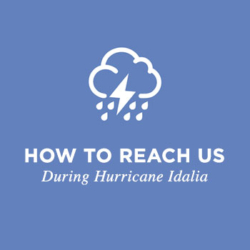
We’re all looking forward to retirement someday… but have you thought about where your retirement income is actually going to come from? Or about how much money you’ll need each month or each year to enjoy a happy and worry-free retirement lifestyle? (As opposed to barely scraping by.)
Having been a financial advisor for nearly two decades, I’ve helped retirees from all walks of life: agriculture business owners, medical professionals, school teachers, firefighters, and many others. The truth is, I’ve seen these hard-working folks on both ends of the planning spectrum.
Can it ever be too late to save for retirement?
Some people have been saving for years and planning ahead, with a large retirement nest egg to show for it. Other people haven’t thought about the two questions above and may have no concrete idea of what they actually need to have set aside for their retirement.
While it’s never too late to start saving, the problem is that there is such a thing as “too late” in terms of planning for a comfortable retirement. Based on age and income, there will be only so much time for the contributions to add up and the market to grow. This means that a lack of planning — regardless of what a person does for a living or how much money they make – can result in missing retirement goals.

I’ve learned that tackling the tricky questions about your retirement sooner rather than later is crucial, rather than learning “the hard way” later on. Knowing the answers to these two questions now is crucial to understanding what you need to save to arrive at your desired future goals!
First: what will you need to live a comfortable, happy retirement?
Whatever the source, I’d encourage you to determine how much money you’ll need to live – and also thrive. “Happy” and “comfortable” are very flexible from person to person; one individual may want to have more funds available for travel, leisure, or purchases — while others may prefer a quieter retirement, and both are a wonderful thing! If you need help coming up with the numbers, a financial advisor can help.
Once you decide what is right for you, ask yourself this:
- Where will the money come from that I will use to build my retirement fund?
- Do I have enough invested currently to retire?
- If not, am I on the right investment growth plan to eventually reach my goal?
Second: where will my retirement income actually come from?
This question may seem obvious, but it’s important to consider the other implications here! Some folks who start saving later in life may be able to reach their goals through other means of income in retirement, combining them with an investment plan.
 For example, are you planning to work part time when you retire? You may simply enjoy continuing to work, or you may already know based on your current income and age – and your desired lifestyle — that it will be necessary. Further still, perhaps you won’t need to work but you’ll enjoy the extra cash. In any case, it will provide additional income to be considered!
For example, are you planning to work part time when you retire? You may simply enjoy continuing to work, or you may already know based on your current income and age – and your desired lifestyle — that it will be necessary. Further still, perhaps you won’t need to work but you’ll enjoy the extra cash. In any case, it will provide additional income to be considered!
Also, will you have any additional sources of retirement income other than from employment or your retirement fund? This can include Social Security payments, rental properties, leases on agricultural land, or a profitable business. All of these can combine together to help you in reaching your retirement income goals.
It takes a lot of money to retire: plan now
The stark reality is that it takes an enormous amount of money to comfortably retire; more than most think, and it’s better to take action as early as possible. This involves not only asking yourself the meaningful question of how much you need in retirement — but also how you must save to get there.
July 2018
Content in this material is for general information only and not intended to provide specific advice or recommendations for any individual. No strategy assures success or protects against loss. Investing involves risk including loss of principal.




